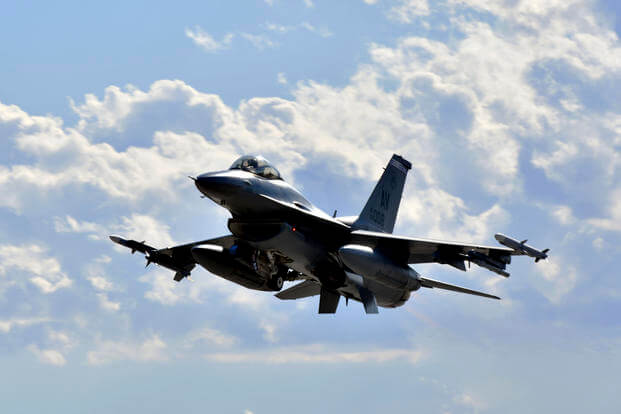WASHINGTON — U.S. senators declined on Thursday to block the sale of F-16s to Turkey, despite voicing deep disdain for Turkey's conduct as an ally. They were upholding an unofficial bargain that Turks would get the fighter jets if they stopped blocking Sweden's accession to NATO.
“A deal's a deal,” said Idaho Sen. Jim Risch, the ranking Republican on the Senate Foreign Relations Committee.
“Call it quid pro quo," Kentucky Republican Sen. Rand Paul, who introduced the resolution to try to block the sale, told fellow senators. “That sounds better than extortion.”
The Senate voted 13 to 79 to reject Paul's proposal.
Along with the Democratic committee chairman, Sen. Ben Cardin of Maryland, Risch took the Senate floor before the vote to acknowledge some of the many U.S. objections to President Recep Tayyip Erdogan's government: its human rights record, its attacks on U.S. allies in Syria, its backing for offensives by Azerbaijan on an ethnic Armenian enclave, and Turkey's ties with Russia on military deals and other matters.
Nevertheless, the Republican and Democratic senior foreign policy leaders argued, adding Sweden to NATO was too important to the overall strategic interests of the Western military alliance and to the U.S. to allow fellow NATO member Turkey to spoil it.
Sweden, and Finland, sought to join NATO in the wake of Russia's 2022 invasion of Ukraine. The United States and the majority of other NATO allies supported the accession, saying the two countries' militaries, industries and locations near or bordering Russia would strengthen the alliance. Finland joined NATO last year, after Erdogan lifted initial objections to that country as well.
Erdogan's objections to Sweden included it offering refuge to Turkish critics in exile. But Erdogan also publicly linked his objections to hopes of overcoming U.S. reluctance to sell him new models of the advanced fighter jet.
“I’m not here to defend Turkey or the other things that they do,” Risch said. “What I am here to do is defend the importance of NATO.”
Paul argued before the vote that continuing to withhold the advanced fighter jets was the best leverage the U.S. had to try to influence Turkey's behavior as an ally.
“What will Turkey do next time they want something?” he asked.
The State Department notified Congress of its approval of the $23 billion F-16 sale to Turkey in January, along with a companion $8.6 billion sale of advanced F-35 fighter jets to Greece.
The State Department agreement came just hours after Turkey deposited its “instrument of ratification” for Sweden’s accession to NATO with Washington, which is the repository for alliance documents, and after several key members of Congress lifted their objections.









